Imagine the following scenario: It’s night. A person is heading towards their room, clutching a kerosene lamp as they walk. Lifting it carefully in front of them in order to light their way and get where they are going. Maybe this simple visualization exercise made you travel back in time and reminded you of scenes from a period drama based in the last century. Unfortunately, it is not a movie nor is it from the past. Even today in the year 2020, flicking a switch to turn on the light is still not a realistic scenario for everyone.
1 out of 7 people in the world have no access to electricity and depend on fossil fuels such as kerosene to light up the night.
In the Amazon alone, there are still 15 million people who continue to burn kerosene every night. The simple purchase of a small candle accounts for a total of 10% of their monthly income. The problem is not only the lack of access to electricity, the consequences of burning gasoline or kerosene are added to the pot: these fuels accelerate climate change, are toxic and ultimately cause respiratory diseases for those that use them, not to mention the adversities faced by the younger generation due to dark and dingy study conditions.
We had the honor of speaking with Eugenio García-Calderó, founder of Light For Humanity, who questioned how he could contribute so that families of the Amazon could have long term clean energy while simultaneously taking care of their health and the environment.
Solar energy appeared as a solution.
Light For Humanity is an organisation that works together with local associations in the Amazon in order to create a solar energy distribution center. In the Amazon, they train a group of women who are responsible for the sale, distribution, and maintenance of off-grid solar systems of up to 10W. Furthermore, they also offer financial aid to both associations and families so that they can pay the cost of the system over the upcoming years. The funding exists due to a collective that became possible thanks to conscious consumers and organisations committed to this particular cause.
- By becoming a conscious consumer. You can buy solar products in the Solar and Solidarity Store. These are used to charge your mobile and / or power a light when on a camping trip. As a result, your purchase makes it possible for a family in the Amazon to have access to a solar lamp and pay for it little by little.
- As a company, through the GENERA energy program, you can now generate solar energy in the Amazon and make up for any of the CO2 emissions produced by activities you have done. Each company has an impact dashboard where communities that have access to solar energy can give their thanks/comments towards the contribution, and how CO2 emissions are being avoided thanks to the elimination of the usage of kerosene.
So far more than 11,000 people have received access to solar energy and the emission of more than 2.300 tons of CO2 have been avoided since the beginning of 2019.
Additionally, two people on average per family perceived that their health has improved due to the usage of solar energy and it has been made possible to establish an increase of 200 hours of study time for each family unit. In order to access the solar equipment, families pay a small monthly fee, which represents a saving of up to 50 % of the cost they had been making on kerosene…
Light for Humanity allows individuals and organisations to reduce their carbon footprints and support families in the Amazon to minimize theirs and enjoy better living conditions. If you are interested in this project and want to help them to continue creating a positive impact, you can learn more about the crowdfunding/collective financing on their webpage.


